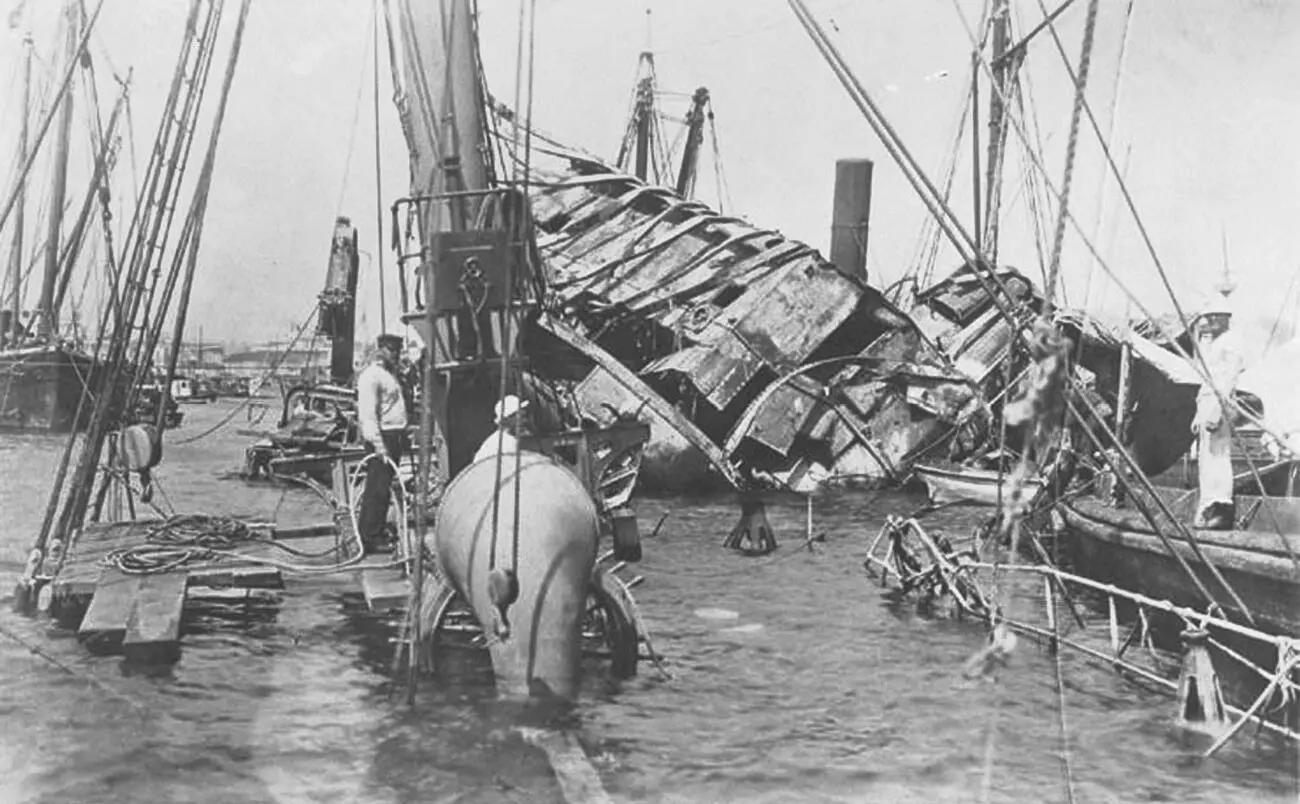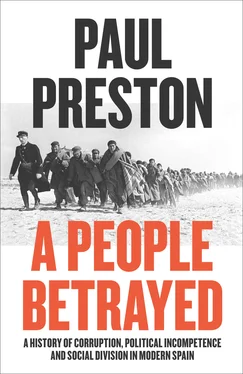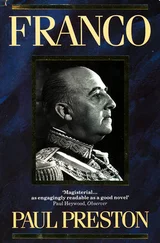1 ...8 9 10 12 13 14 ...18 
The USS Maine , blown up in Havana harbour, the excuse for the Spanish-American war of 1898. (The History Collection/Alamy)
2
Violence, Corruption and the Slide to Disaster
The consequence of the turno system was that politics became an exclusive minuet danced by a small privileged minority. As well as the caciques who were committed to one or other of the parties, the Conservative La Cierva or the Liberal Gamazo, there were amenable caciques who would work for both parties. This is illustrated by the oft-related story of the cacique of Motril in the province of Granada. When the coach with the election results arrived from the provincial capital, they were brought to him in the local rich men’s club or Casino. Leafing through them, he declared to the expectant hangers-on: ‘We the Liberals were convinced that we would win these elections. However, the will of God has decreed otherwise.’ A lengthy pause. ‘It appears that we the Conservatives have won the elections.’ Excluded from organized politics, the hungry masses could choose only between apathy and violence. Their apathy allowed the local authorities to fabricate the results without too much opposition. Violent resistance guaranteed arrest, torture and perhaps execution. From 1876, the electorate consisted of men over the age of twenty-five who could afford to register to vote, by paying a 25 peseta tax on property or a 50 peseta tax on their economic activities. For the elections of 1879, 1881, 1884 and 1886, the electorate numbered approximately 850,000. The introduction of universal male suffrage in 1890 extended the electorate to just under four million for the elections of 1891, 1893, 1896, 1898, 1899, 1901 and 1903. By increasing the threat of the electorate using its votes in its own interests, the reform also intensified the use of electoral corruption in the interests of property.1
However, the electoral list had little to do with those whose votes were actually registered. Control of the local judiciary facilitated the removal of enemies and the addition of friends. In 1879, around 40 per cent of those who voted in Barcelona were government functionaries whose jobs depended on how they voted. In 1881, in Valencia, 75 per cent of those that voted had no right to do so. In 1884, Romero Robledo managed to reduce the potential electorate in Madrid from 33,205 to 12,250. That alcaldes were government nominees ensured that they would be willing electoral agents. Those who refused could simply be removed or forced to resign by threatening them with exorbitant fines for invented or trivial offences such as failure to respond to letters or to introduce the metric system.2
This all worked best in poor rural areas, particularly in Galicia and Andalusia, because the votes of a poverty-stricken and largely illiterate electorate could be falsified easily. Accordingly, the official turnout in rural areas was recorded as an utterly implausible 80 per cent. The cities, where it was so much more difficult for the techniques of caciquismo to be applied, recorded much lower electoral participation. As the century wore on, votes in the cities were increasingly the only ones that could be accepted as genuine. Thus, to neutralize them, the ministers of the interior of the dynastic parties had no compunction about resorting to gerrymandering, flagrantly changing electoral boundaries to swamp towns with the falsified votes of surrounding rural areas. This was possible while the Cortes was small and constituencies large. Even then, backward Galicia was over-represented in the Cortes while industrial Catalonia was dramatically under-represented. Between 1876 and 1887, there were only 210 deputies in the Cortes. After 1891, there were 348. By the turn of the century, urbanization saw an increasing influx of deputies from non-dynastic parties and even republicans.3
The quest for government jobs went on unabated. The queues of place-seekers outside his house obliged Sagasta on occasion to sleep in an hotel. Within two weeks of coming to power, he had replaced all the under-secretaries of all the ministries, virtually all the directors general in the ministries of the Navy, of Overseas Territories, of Finance and of Development, seven in the Ministry of the Interior and four in the Ministry of War, forty-seven civil governors, the Chief Justice of the Supreme Court and three of the eight captains general of the military regions. Sagasta’s election fixer, Venancio González, emulated Romero Robledo and arranged a substantial Liberal majority in the late-summer elections of 1881. The immediate consequence was that, at provincial and municipal level, the number of sacked bureaucrats was legion.4
Under Cánovas, gambling casinos were illegal but were allowed to function when the appropriate bribes were paid. In Madrid, for instance, each casino paid 35,000 pesetas to the Civil Governor of Madrid, the Marqués de Heredia Spínola. Theoretically, the money was for charitable purposes, but there was no auditing. Heredia’s successor, the Conde de Xiquena, tried to close the casinos, only for the owners to mount a bombing campaign in June 1881 which severely injured a number of children. It was later alleged by Xiquena that Romero Robledo had been one of the beneficiaries of the bribes paid by the gambling bosses. The accusation had to be abandoned when Cánovas threatened to bring the Cortes to its knees by leading a walkout of the Conservative Party.5
While the Liberals failed to introduce significant reform, working-class opposition to the system was growing. The Federación de Trabajadores de la Región Española (FTRE), the Spanish section of the International Workingmen’s Association or ‘First International’, began to organize openly. It soon had 57,000 members, concentrated mainly in Andalusia and Catalonia, but was split over the relative efficacy of strikes and terrorism. The nucleus of the Socialist movement, the Asociación del Arte de Imprimir, was gaining ground through a successful strike by typesetters in 1882.6 In January 1884, Alfonso XII had brought back Cánovas. His Minister of the Interior, Romero Robledo, presided over notoriously corrupt elections on 27 April that year and secured a Conservative majority of 295 seats against 90. Cánovas’s government faced numerous problems – military subversion, the ongoing concerns about the alleged anarchist secret society called the Mano Negra, a cholera epidemic, unrest in Cuba and the fact that the King was facing a progressively more debilitating battle with virulent tuberculosis. In fact, Alfonso did not look after himself, failing even to wear warm clothing on hunting trips in bad weather.
Armed with such a big majority, the new cabinet’s instinctive response to most problems was reactionary. Cánovas himself was seen as intolerably arrogant. The Cuban situation was worsened by the new Minister of Overseas Territories, Manuel Aguirre de Tejada, refusing to contemplate the abolition of slavery. This was not unconnected with the interests of Romero Robledo, who was the son-in-law of the fabulously rich sugar magnate Julián de Zulueta y Amondo. Known as ‘the prince of the slavers’, the Basque Zulueta had huge plantations and three sugar mills in Cuba and others in Álava.7 That connection explains why Romero Robledo would later, in November 1891, seek to be named Minister for Overseas Territories. Shortly after the 1884 elections, a minor republican uprising at Santa Coloma de Farners near Girona was easily suppressed. However, when courts martial failed to hand out death sentences for the two leaders, a major and a captain, the government went ahead and had them shot despite widespread protests, including from the King. On 20 November 1884, a minor student demonstration in favour of a professor who had been excommunicated for making a speech in favour of the theories of Charles Darwin was repressed with some violence by the Civil Guard. On Christmas Eve, a series of earthquakes in Andalusia left thousands homeless, many of whom died from cold and others from the cholera epidemic. A visit to the affected areas left the King disgusted with what he had seen of government neglect. He also ignored the Prime Minister’s advice and visited areas affected by cholera.
Читать дальше













